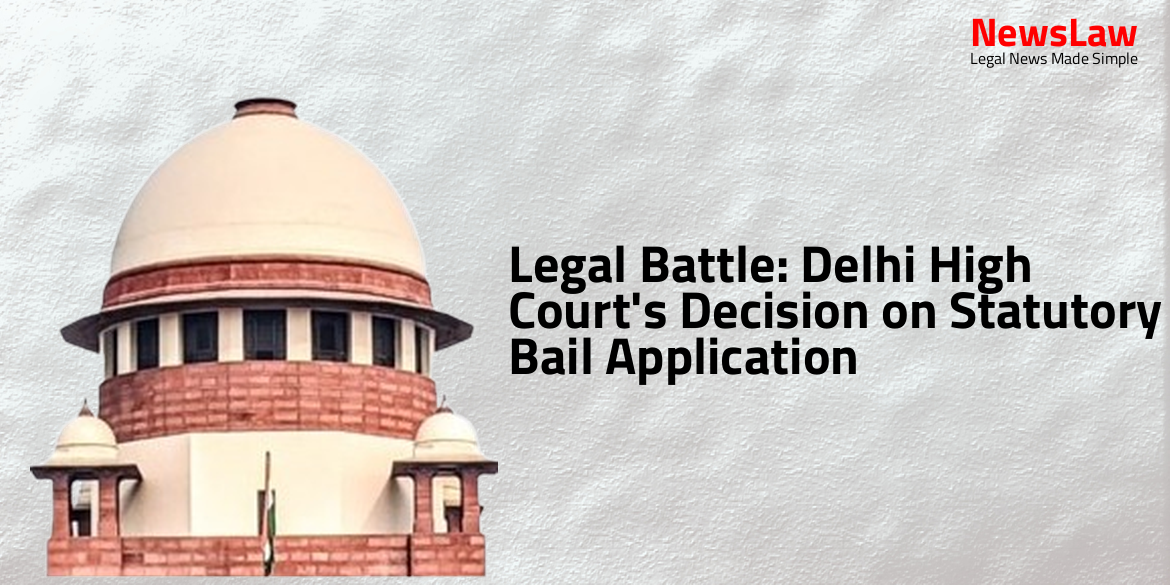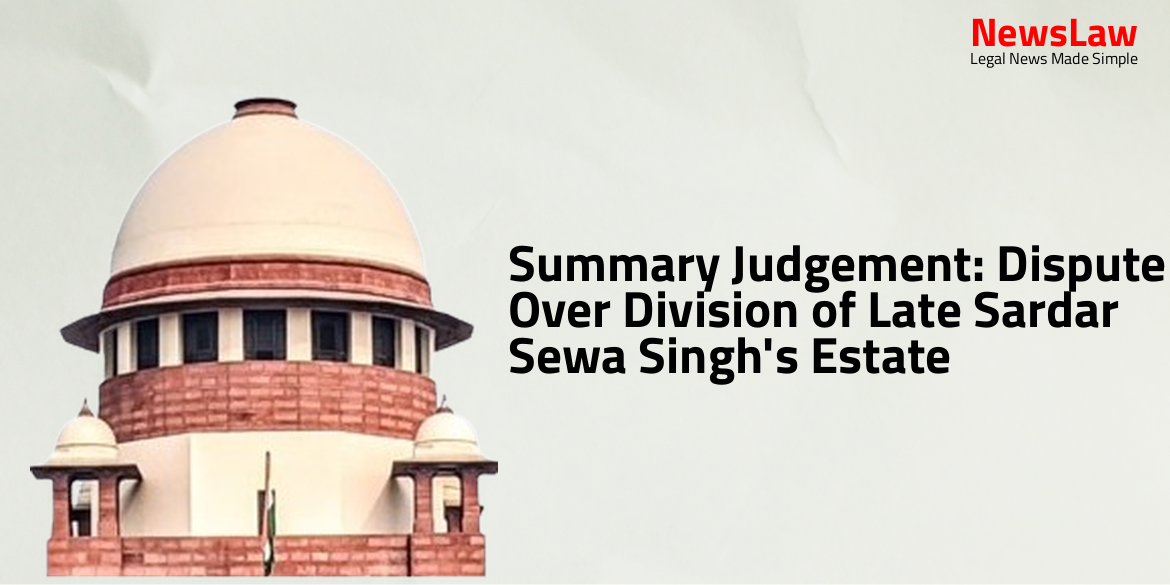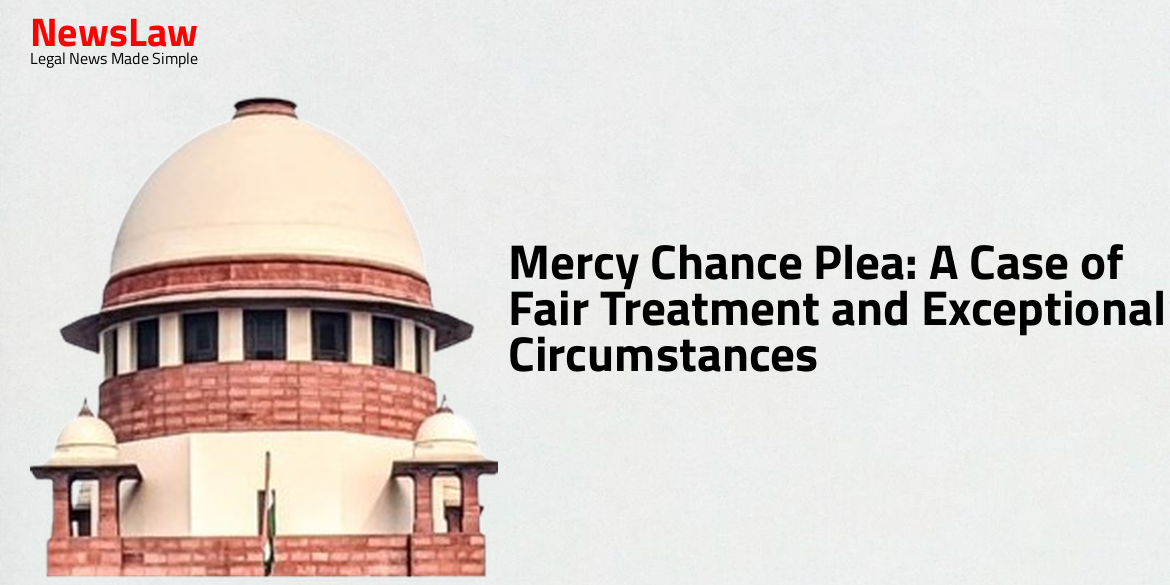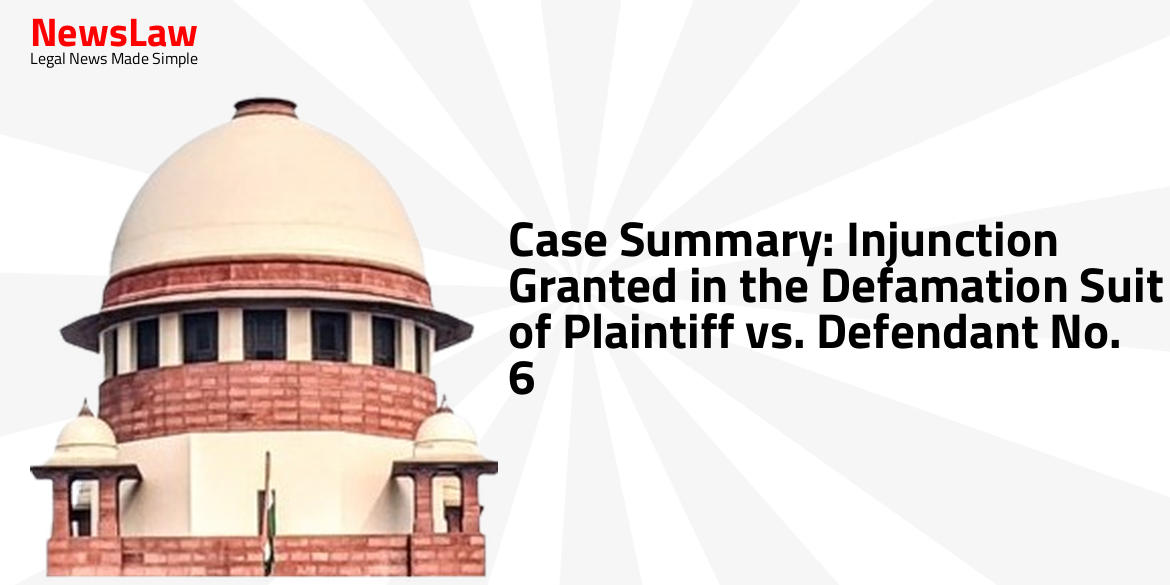In a recent legal battle, the Delhi High Court addressed a crucial issue regarding statutory bail application. The court’s decision has implications on the rights of individuals involved in criminal cases. Stay tuned to learn more about the ruling and its impact on the legal landscape.
Facts
- The petitioner filed an application under Section 167(2) of the Cr.P.C. seeking statutory bail.
- The Charge Sheet was not filed within the 90 days statutory period.
- On 11.03.2024, the Charge Sheet was not filed, leading to an extension of judicial custody by one day.
- The application was returned by the learned Metropolitan Magistrate and directed to be filed in the Facilitation Centre.
- The petitioner was remanded to judicial custody on 14.12.2023.
- The application for statutory bail was rejected by the Metropolitan Magistrate.
- Charge Sheet in the case was submitted on 11.03.2024 at the Filing Counter, Facilitation Centre, Dwarka Courts by the concerned police official.
- As per the Circular dated 20.07.2020, the Charge Sheet was allocated to the Court of the Metropolitan Magistrate on the same day for e-filing.
- E-filing is not mandatory for Charge Sheets in State Cases, so the physical file was handed over in court on 13.03.2024.
- The physical file was registered on the CIS database on 13.03.2024 against a specific case number.
Arguments
- E-filing of the Charge Sheet is not recognized in law, as per the judgment in Enforcement Directorate Government of India v. Kapil Wadhawan & Anr., 2023 SCC OnLine SC 972.
- The Charge Sheet was filed after the petitioner’s application under Section 167(2) of the Cr.P.C., on 13.03.2024.
- The filing of the Charge Sheet post the petitioner’s application does not negate their right to seek statutory bail.
Analysis
- The accused has a statutory right to bail under Section 167(2) of the Cr.P.C., which is also a Constitutional Right guaranteed under Article 21 of the Constitution of India.
- The right to statutory bail exists until the charge sheet is filed; once the charge sheet is filed, the right extinguishes.
- The procedure for filing and consuming charge sheets in the court system of Delhi District Courts is detailed and involves verification by court staff and the investigating officer.
- The accused must exercise their right to statutory bail before the charge sheet is filed; the right does not survive post-filing.
- If the charge sheet is filed within the stipulated time, even if cognizance has not been taken, the accused is not entitled to statutory bail under Section 167(2) of the Cr.P.C.
- The accused’s custody and remand status after the charge sheet has been filed are governed by different provisions of the Code of Criminal Procedure.
- The procedure post-filing of the charge sheet includes registration of the case in CIS, allocation to the concerned court, and further legal proceedings based on the charge sheet.
- Non-completion of investigation within the specified time period entitles the accused to be released on statutory bail.
- The filing of the charge sheet is crucial in determining the entitlement to statutory bail under Section 167(2) of the Cr.P.C.
- The Magistrate may authorize the detention of the accused in custody for a period not exceeding fifteen days during the investigation.
- Detention beyond fifteen days requires adequate grounds and shall not exceed ninety days for serious offenses or sixty days for other offenses.
- The accused shall be detained until bail is furnished, even after the specified period expires.
- The Magistrate can extend the detention up to fifteen days at a time, and beyond that if necessary, until the accused furnishes bail.
- The accused must be produced before the Magistrate in person for the first time, and subsequently either in person or through electronic video linkage for further detention in judicial custody.
- Magistrates of the second class, not specially empowered by the High Court, cannot authorize detention in police custody.
- Accused has an indefeasible right to bail before charge-sheet is filed
- Once charge-sheet is filed, accused can apply for regular bail on merits
- Effect of complaint filed via e-mail not considered in Kapil Wadhawan case
- In Natabar Parida and Sanjay Dutt cases, bail applications were made before charge-sheet filing
- Accused’s right to bail ends once charge-sheet is filed
- Custody post charge-sheet filing governed by different Cr.P.C. provisions
- Enforceable right to bail only exists before challan filing
- Statutory/default bail not applicable post chargesheet filing as per Supreme Court rulings in mentioned cases
- The judgment mentioned is not relevant to the current case.
- The issue raised in the present case is different from the one addressed in the mentioned judgment.
Decision
- Decision 27 is dismissed by the judge.
- The judge found no merit in the present petition.
Case Title: BANTY Vs. STATE (NCT OF DELHI) (2024:DHC:4292)
Case Number: CRL.REV.P.-407/2024



